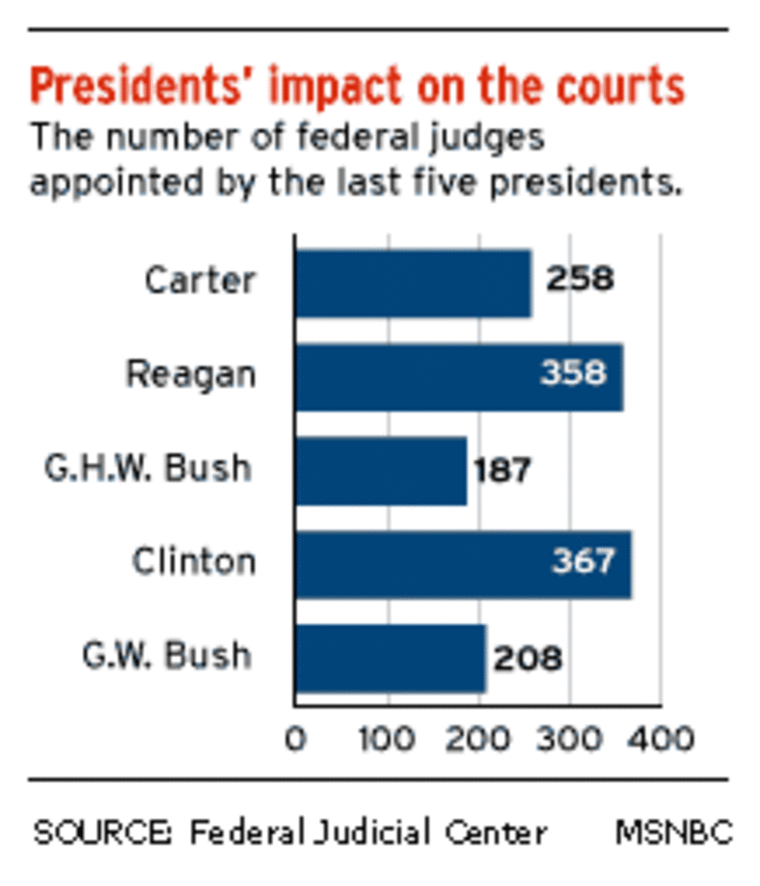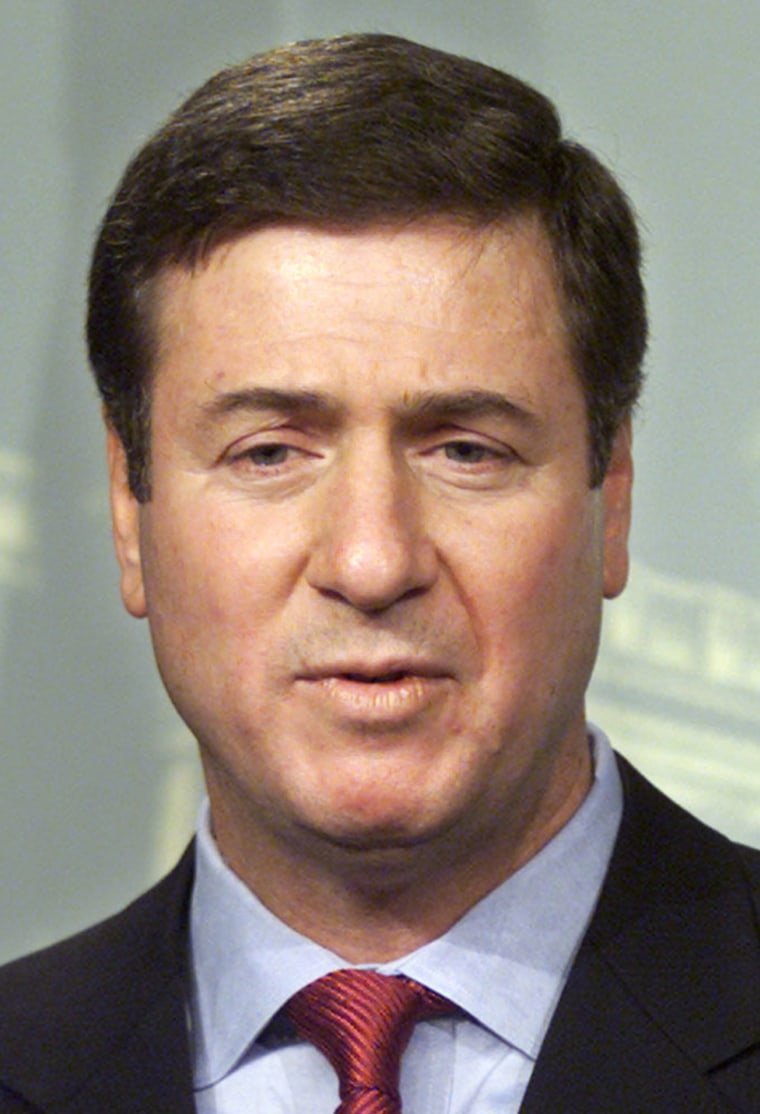As if the battle over federal judges and “judicial activism” were not superheated enough, a ruling Thursday by U.S. District Judge Joseph Bataillon to scrap Nebraska’s constitutional definition of marriage has added new fuel.
Bataillon’s decision – the first time that a federal judge has struck down a state constitutional provision limiting marriage to heterosexual couples – comes just a few days before the Senate begins its long-awaited debate on filibusters of President Bush’s judicial nominees.
Bataillon’s decision pits the life-tenured judiciary against direct democracy: who is more powerful, one federal judge, or the 477,571 Nebraskans, 70 percent of the voters, who cast ballots in favor of the constitutional provision back in 2000?
For now, the answer is Bataillon.
The judge was nominated to the bench by President Clinton and unanimously confirmed by the Senate in 1997.
Nebraska Attorney Jon Bruning will appeal Bataillon's ruling to the federal appeals court for the Eighth Circuit and it might some day wind up before the Supreme Court.
Who goes to the high court?
The struggle over the membership of that court (with Chief Justice William Rehnquist expected to step down next month) is the subtext for next week’s Senate battle over judicial filibusters.
At a Senate Republican press conference Friday on filibusters, Charles Cooper, former assistant attorney general in the Reagan administration, reacted heatedly to Bataillon’s decision, saying, “It is quite timely given the subject matter that we’re taking up. We have fresh evidence of the enormous, extraordinary power that even a single federal district judge has.”

Cooper added, “The notion that the people of Nebraska cannot decide this question by themselves through their constitutional amendment process is ludicrous.”
Bataillon’s decision, he said, would “frame the debate that is now before the Senate and before the American people.”
Cooper, a former law clerk for Rehnquist, was head of the Office of Legal Counsel in the Reagan era and played a big role in selecting judicial nominees for Reagan to send to the Senate for confirmation or rejection.
He served on the front lines in the battles over Rehnquist’s nomination to be chief justice in 1986 and Robert Bork’s failed bid in 1987 to become an associate justice.
GOP senator sees decisive issue
Criticizing Bataillon’s ruling, Sen. George Allen, R-Va., said, “Decisions like this are why we have stronger majority in the Senate. I was chairman of the Republican Senatorial Committee for the past two years. Whether I was in the Low Country of South Carolina with (GOP Senate candidate) Jim DeMint… or the Black Hills and Rapid City, South Dakota with John Thune, when I was trying to motivate people, I’d always finish off with ‘we need judges who’ll apply the law, not invent the law.’”

He said the debate over last November’s election exit poll data on “values” was a bit off target.
“People (on the campaign trail) weren’t talking that much about same-gender marriage or abortion,” Allen recalled. “The judge issue was a values issue and truly one of the key motivating issues for the people who voted for us. We’ve been accorded a strengthened majority, we need to act. We need to keep our promises to the American people.”
Allen is a strong proponent of changing Senate rules to lower the threshold for stopping a filibuster of judicial nominees from 60 to 51. The Senate appears set to vote on the rule change next week.
Meanwhile, the debate among lawyers is over how widespread the Nebraska ruling’s effect will be, assuming it is upheld by the appeals court and the Supreme Court.
If, as Bataillon ruled, the Equal Protection Clause of the Fourteenth Amendment does not permit Nebraska to limit legal recognition of marriage to man-woman couples, then the question is: does any state, through its legislature or by referendum, have the power to limit marriage to man-woman couples?
Or does the Constitution require that all states give legal recognition to same-sex marriages?
State ballot measures
Last November voters in 11 states indicated their preference: from Ohio to Oregon, they approved constitutional provisions limiting marriage to heterosexual couples.
Even in Michigan and Oregon, both of which Democratic presidential candidate John Kerry carried, the measures passed.
Twenty-six states now have statutes defining marriage as being between a man and a woman, while 17 others have state constitutional provisions.
A supporter of giving gays and lesbians to right to marry, Evan Wolfson, executive director of Freedom to Marry, said Bataillon was simply doing his job as a judge: “to do what courts are supposed to do — guarantee each of us our right to equal justice under law and equal citizenship in our country and home state.”
Wolfson said, “The constitutional amendments pushed by right-wing groups state by state to tie the hands of all states, all cities and government agencies, and all future generations to prevent any protection or fair treatment of gay family members — and to prevent gay Americans from even asking for any level of protection — are unconstitutional and un-American.”
The debate over marriage is continuing, not only in federal courthouses, but within the political parties.
This weekend the Massachusetts Democratic Party convention meets in Lowell, Mass. and is set to adopt a plank supporting same-sex marriage.
Almost exactly one year ago, the state’s highest court ruled that the state could not deny the protections of marriage to two people of the same sex who wished to marry.
Kerry, who repeatedly said in last year’s presidential campaign that he opposed same-sex marriage, called his state party’s same-sex marriage endorsement “a mistake,” drawing him a rebuke from gay rights advocates such as the Human Rights Campaign.
"The Massachusetts Democratic Party is simply affirming the reality that 5,000 same-sex couples and families are stronger and more secure today because of marriage equality," said HRC President Joe Solmonese.